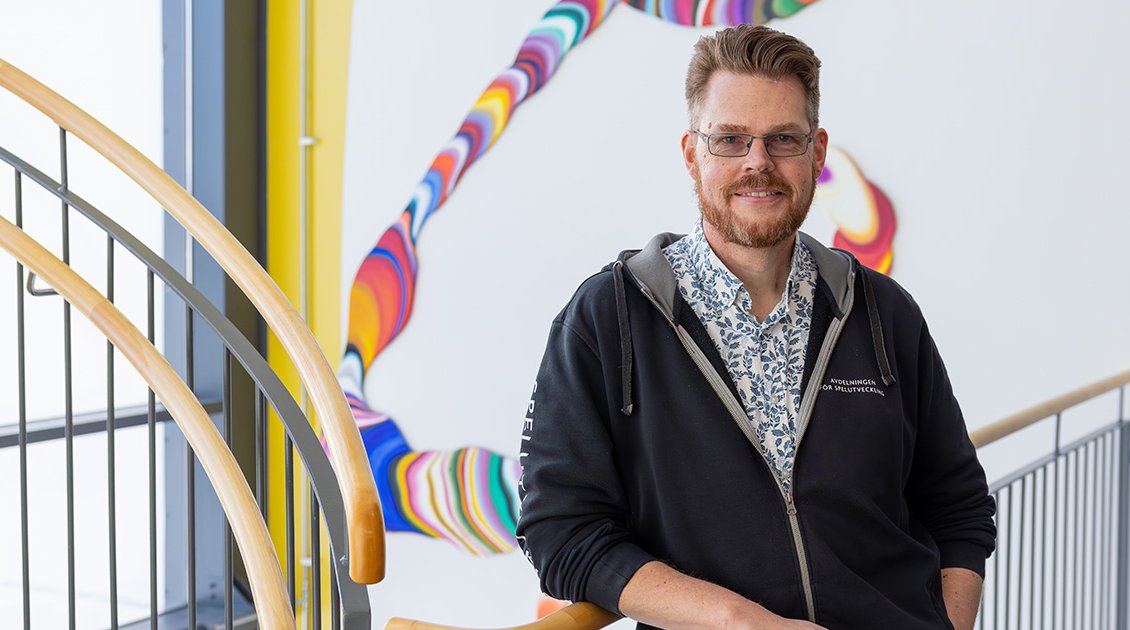Features from gaming enhances engagement in local news

Torbjörn Svensson, PhD Student in Informatics at the University of Skövde. Photo: University of Skövde.
Local media would gain a lot of reader engagement by adopting principles from digital games. “Much that is obvious to other actors does not exist in the newspaper world,” says Torbjörn Svensson, PhD Student in Informatics at the University of Skövde. He has researched how the functions and values of digital games can increase engagement with local news media.
As people began to use the internet more often, the local newspapers had to adapt. Paper editions were supplemented with a digital magazine and an online news site. Today, the news site has in some cases completely replaced the printed newspaper. However, although local newspapers were quick to adapt to the web format, interactivity and user experience have not quite kept up.
“All newspaper readers are different and today's online newspapers do not take that into account. In a printed newspaper, people read what they are interested in and skim past the rest. The opportunity to do so disappears on the web where there is no good overview,” says Torbjörn Svensson.
Newspapers differ in this way from other digital media, for example computer games, which are constantly developing new ways to engage their audience. Torbjörn Svensson has developed a model that shows measures newspapers can take to increase reader engagement, by applying principles from the gaming world. The model is based, among other things, on knowledge of user types, and tries to reduce the gap between traditional news reading and the increasingly digitised media.
Do more of what the reader wants
Torbjörn Svensson believes that the news sites must address themselves more to the user and do more of what the user appreciates. One example is the ability to search for news, but good search functions are often missing on the local news sites.
“After over 20 years on the internet, people have learned to search. When you want to look for an article you've read, you might remember the subject, who is speaking, and that it was in the spring. Despite this, it is not certain that you can find the article via the news site's search function and you are forced to use Google.”
Another clear suggestion for improvement is a better connection between the newspapers' website and app.
“Much that is obvious to other actors does not exist in the newspaper world. What you watched on Netflix is registered in both their website and app. But the newspapers' apps do not detect whether you have read an article on their website.”
Important with a social layer
Digital games often offer their players online meeting venues, which means that the players both get social exchange, a context and maybe can meet like-minded people. In the newspaper world, it is often more traditional social media that apply, for example a comment section on Facebook, where the tone can sometimes be harsh. Torbjörn Svensson believes that the newspapers would benefit from adding a "social layer" to the news apps so that you can collaborate with other readers or with the editors.
“One thing could be to be able to show what you think about a piece of news with some kind of reaction function, such as thumbs up, star or emoji. Another is to be able to give feedback to the editors that you want to see more news of this type, or to be able to comment the way the news is presented. You may have knowledge of something that the journalist seems to miss or want to tell how you yourself perceive the situation."
Torbjörn suggests opening some form of communication channel between readers and editors, so that it is not just one-way communication, but a dialogue.
“The newspapers should be able to work more together and care more about the reader and their needs. However, it is difficult to be innovative. It wasn't the big music publishers that created Spotify and it wasn't the big film companies that created streaming services for movies. So, we cannot count on the large newspapers creating the digital local news of the future. The question is who is crazy enough to try to do it."
